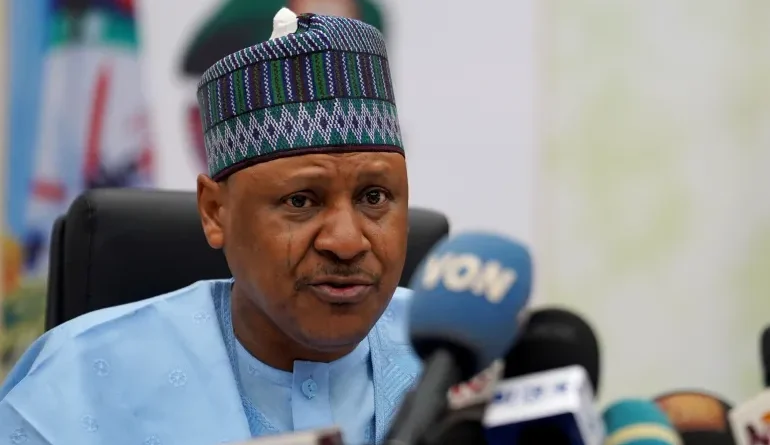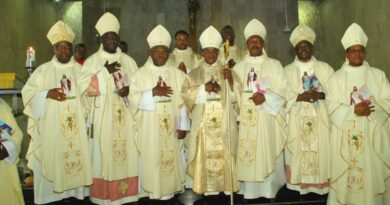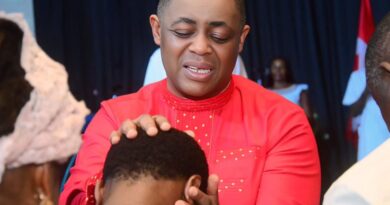Nigeria Seeks US Cooperation to Tackle Violent Attacks
For weeks, Nigeria has been gripped by reactions to comments from United States President Donald Trump, who threatened to invade the country over what he describes as a Christian genocide. In response, the Nigerian government is calling for cooperation rather than confrontation, insisting that the crisis in the country is far more complex than the narrative being spread in Washington.
Nigeria Rejects Claims of Targeted Religious Killings
Nigeria’s Minister of Information and National Orientation, Mohammed Idris Malagi, strongly refuted Trump’s claims during an interview with Al Jazeera. While acknowledging that the country faces serious security challenges, he stressed that the violence is not driven primarily by religion.
Malagi explained that extremist groups attack both Christians and Muslims, and that presenting the conflict as a deliberate persecution of Christians misrepresents the situation. According to him, the claim of Christian genocide stems from a misunderstanding of Nigeria’s diverse and complicated security landscape.
He reaffirmed that the government does not tolerate violations of religious freedom and is actively pursuing attackers.
Trump’s Threat and the CPC Designation
Trump escalated tensions on October 31 when he reposted Nigeria on the Country of Particular Concern list, accusing the government of enabling religious persecution. The following day, he instructed the Department of Defense to prepare for possible military action.
Abuja firmly rejected these claims. Many Nigerians, including government officials, religious leaders and citizens affected by violence, insist that the crisis is driven by criminality, resource conflicts and extremism, not religious targeting.
ALSO READ: Campus Friendsgiving Brings Christian Groups Together
Nigeria Appeals for Stronger Partnership with the United States
Rather than engaging in a diplomatic confrontation, Malagi revealed that Abuja is in discussions with the United States to strengthen security cooperation. He noted that Nigeria prefers partnership and shared strategies rather than threats of foreign intervention.
Nigeria and the United States have a long history of military cooperation, including arms purchases, training and joint exercises. Malagi said these channels remain active.
He acknowledged that Nigeria must appoint ambassadors to strengthen diplomacy, especially in Washington, where misinformation can spread if seasoned diplomats are absent.
Overlapping Crises Fuel the Violence
Nigeria has battled armed conflict since 2009, starting with the Boko Haram insurgency in the northeast. Over the years, violence has spread through banditry, separatist unrest, communal clashes and widespread kidnapping.
The middle belt region continues to experience deadly clashes between pastoral herders and farming communities. Experts say many of these conflicts are driven by competition for land and water, worsened by environmental changes like desertification.
Nigeria’s vast population of 235 million people from more than 250 ethnic groups adds further complexity. Both Muslim and Christian communities have been devastated by attacks, and millions face hunger due to disrupted farming activities.
ALSO READ: CAN Warns of Growing Christian Genocide in Nigeria
Government Response and Growing Criticism
Despite government efforts, many Nigerians believe authorities are not acting fast enough. Attacks continue across the country. A recent kidnapping of 25 schoolgirls in Kebbi State and the killing of a Nigerian military general by ISWAP have intensified public pressure.
Malagi stated that President Bola Tinubu has ordered security agencies to flush out armed groups. He reported that more than 13,500 fighters have been killed and over 17,000 arrested under the current administration.
The government is also considering community policing to place officers within their local areas, where they understand local dynamics. Although previous administrations rejected this idea, the worsening security situation has renewed interest.
Security experts argue the policy is overdue and may need to be complemented by a state of emergency in northern and central regions.
Regional and Environmental Factors Complicate the Crisis
Regional instability has further strained Nigeria’s security. The withdrawal of Niger, Mali and Burkina Faso from ECOWAS has weakened joint military cooperation and allowed extremist groups more room to operate.
Armed groups are expanding across the Sahel, and some have begun pushing toward Nigeria’s borders. Analysts warn that weak governance structures in the region are enabling insurgent networks to grow.
Environmental pressures also drive conflict. As herders move south due to drought and desertification, clashes with farming communities often escalate into violence.
A Call for Collaboration and Understanding
In the face of growing international attention, Malagi insisted that threats of United States military action would only inflame tensions. He urged Washington to work with Nigeria through established diplomatic and military channels.
According to him, cooperation will lead to long term solutions, while threats only deepen mistrust.
“We believe that we can do better if we have better cooperation with the United States to tackle this once and for all,” he said.
Content Credit: Ohidah Oluwaferanmi
Image Credit: Al Jazeera.com




